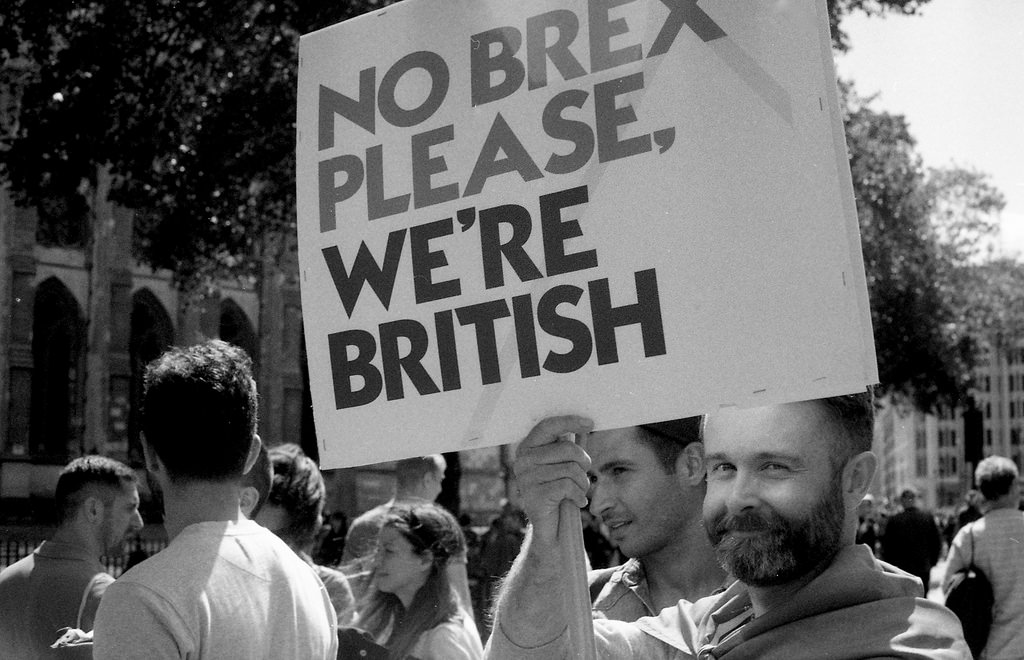“Questions as Britain votes to leave the EU”
July 13th, 2016 Eyes were on Britain as it voted to leave the European Union, but Ruth Adeyi, 23, a Correspondent from London, UK, reports there has been a measure of regret and political rancour since that historic vote.
Eyes were on Britain as it voted to leave the European Union, but Ruth Adeyi, 23, a Correspondent from London, UK, reports there has been a measure of regret and political rancour since that historic vote.
The political landscape is being reshaped by the divide of those who voted ‘leave’ versus ‘remain’. On both sides there is frustration about how wealth is spread and how the country is governed. For Leavers, exiting the European Union is an opportunity to “take back control”, and for some the exit was a rejection of British multiculturalism.
However, the decision to exit the EU is revealing broader divides along generational, economic and political lines. There is overall dissent and frustration with leaders.
The position of the younger generation was clear – 73 per cent of 18 to 24-year-olds and 62 per cent of 25 to 34-year-olds voted to remain. Statistics show the older the voters, the higher the percentage of leave votes. There was a large national turnout – 72.2 per cent of the population voted in the EU referendum. Disappointingly, however, only 36 per cent of 18 to 24-year-olds cast their vote.
It was clear before June 23rd that a major challenge for ‘remain’ would be voter apathy amongst young people, who were the strongest group in support of remaining in the EU. Reports suggest young people feel ‘betrayed’, ‘let down’ and have experienced a ‘political awakening’. However, this is underscored by the low numbers of young people who exercised their right to vote. If a larger number of young people were more ‘politically awake’ beforehand, trends suggest the result of the referendum may have been different.
Since there is no clear vision being put forth by leave leaders, the public is increasingly voicing its concerns. Voters are steadfast in their convictions against politicians. The feeling is that politicians have let the public down politically and economically. Parliamentary party chaos highlights this deep political crisis in the UK’s democratic structure.
The vote to leave the European Union has intensified the decade-long tensions between and within the Labour and Conservative parties. Jeremy Corbyn, the Labour leader, is refusing to resign after a no confidence vote of 172-40, and the Conservative party is only moderately intact. Before Brexit, Boris Johnson, a former London Mayor who was at the forefront of the Conservative leave campaign, had been flaunted by the media as the next Prime Minister. However, he has since released a statement making it clear he will not be in the Conservative party leadership race. At a time when the country requires united and strong leadership the political chaos is only contributing to a loss of trust, confidence and confusion.
Photo credit: March For Europe anti brexit March, London, United Kingdom 02/06/16. Img-06 via photopin (license)
…………………………………………………………………………………………………………………
About me: My name is Ruth and I live in London. My main interest is the “International Drug Complex”. Using existing research on the failed “war on drugs”, I hope to draw awareness to how the international community and legal intervention in different countries is re-interpreting drugs, the drug market, and law enforcement.
My other interests include feminist theory, international trade and labour, climate change and environmental policy, and issues of social justice.
…………………………………………………………………………………………………………………
Opinions expressed in this article are those of the author and do not necessarily represent the views of the Commonwealth Youth Programme. Articles are published in a spirit of dialogue, respect and understanding. If you disagree, why not submit a response?
To learn more about becoming a Commonwealth Correspondent please visit: http://www.yourcommonwealth.org/submit-articles/




